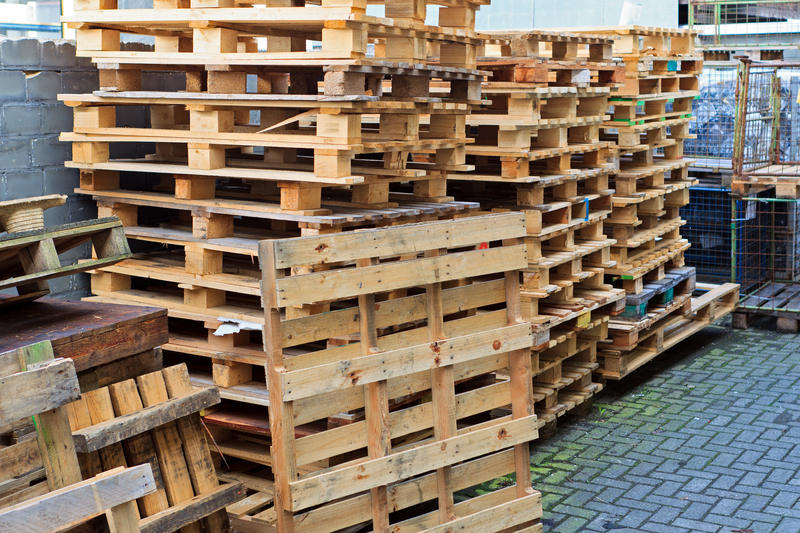Clever Ways to Save Money on Bulky Waste Items Around Your Home
Bulky waste items -- from old furniture and mattresses to appliances and carpets -- often cause headaches when decluttering or moving. Disposing of these large household items can be expensive and sometimes confusing. Fortunately, there are clever ways to save money on bulky waste disposal and even make some cash in the process. This in-depth guide explores budget-friendly, environmentally conscious, and innovative solutions to deal with large and unwieldy trash from your home.
Understanding Bulky Waste and Its Financial Impact
Before diving into money-saving tips, it's important to define bulky household waste. These are items too large for regular bin collection, including:
- Sofas, chairs, and other furniture
- Beds, mattresses, and box springs
- White goods like refrigerators, ovens, and washing machines
- Carpets and rugs
- Large electronics (televisions, exercise equipment, etc.)
- Outdoor furniture and garden debris
*Why does disposing of these items cost so much?* Municipal waste collection often charges steep fees, especially for electricals and white goods. Private junk removal services can charge by the cubic yard or piece. If you don't plan ahead, the costs add up quickly.

Clever, Cost-Saving Solutions for Bulky Waste Removal
Below, you'll discover a range of smart strategies to save money on bulky waste disposal, while caring for the environment and, sometimes, helping your local community.
1. Sell or Give Away Large Items
One person's trash is another person's treasure! Here are eco-friendly and profitable methods to offload your bulky possessions:
- Online Marketplaces: List items on Facebook Marketplace, Craigslist, Nextdoor, or eBay. Even if an item is a little worn, DIY-ers or upcyclers might pay for it or pick it up for free.
- Apps for Giving: Try Freecycle or Buy Nothing groups if you simply want someone to take the item. Fast, free, and saves landfill space.
- Garage Sales: Organize a garden or yard sale focusing on larger household items. Group your unwanted pieces and advertise locally.
Pro tip: Even old appliances may be valuable for parts and scrap metal. List all details, and always mention if the buyer must collect from your home.
2. Repurpose Furniture and Appliances
Why pay to dispose when you can upcycle or repurpose bulky items in creative new ways? Here's how to give your large items a second life:
- Convert Bookshelves into Shoe Racks or Storage Units
- Transform Old Mattresses into Pet Beds
- Turn Wooden Pallets or Bedframes Into Garden Planters
- Use Appliance Parts for DIY Projects -- drums from washing machines make great firepits!
This not only saves money on bulky waste removal but also adds unique, functional pieces to your home or garden.
3. Take Advantage of Local Council Collection Programs
Most municipalities offer free or discounted bulky waste item pickup for residents once or twice a year. Here's what you need to know:
- Contact your local council or waste authority to learn about collection schedules and accepted items.
- Many programs allow you to book a collection slot online. Plan ahead as waiting times may vary.
- Sort your items properly; some councils charge extra for white goods or electronics, while soft furnishings may be free or discounted.
This approach saves you the cost and hassle of hiring a skip or private rubbish removal service.
4. Carefully Consider Skip Hire and Shared Skips
When faced with multiple large items, hiring a skip might seem the obvious choice. However, skips are expensive and often unsuitable for certain bulky household waste (mattresses, fridge/freezers, etc.). To cut costs:
- Share a skip with neighbors planning cleanouts at the same time.
- Use "man with a van" services -- these are typically more flexible and charge by weight or item.
- Only hire a skip if absolutely necessary. Always compare quotes and check for hidden fees.
Remember: Always ensure your waste carrier is licensed; illegal dumping can land you with a hefty fine.
5. DIY Drop-Off at Recycling or Household Waste Centers
If you have access to a vehicle, consider self-hauling your bulky waste to a local recycling or disposal center. Most facilities accept furniture, mattresses, and appliances -- sometimes for free or at a subsidized fee.
- Check your waste center's website for accepted items and opening hours.
- Sort your load by material type (wood, metal, fabric, electronics) to speed up your visit.
- Bring proof of residency -- some centers only serve local households.
This approach can significantly reduce your large item removal expense and ensures responsible disposal.
6. Donate Bulky Items to Charity
Many charitable organizations accept gently used furniture, appliances, and electronics. This reduces landfill waste and supports a good cause.
- National charities like the British Heart Foundation (UK) or Goodwill (US) often provide free collection for resalable items.
- Local homeless shelters, women's refuges, and community projects may also need beds, tables, and sofas.
- Check the condition requirements and arrange pickup in advance.
Donation receipts may even qualify for a small tax deduction -- check your national guidelines.
7. Repair or Refurbish Before Disposing
Often, large household items are thrown away due to minor damage. Instead of paying for bulky waste removal, consider:
- Repairing broken furniture with simple fixes (screws, glue, wax sticks, or brackets).
- Refurbishing faded or dated sofas with slipcovers, throws, or new legs.
- Hiring an appliance technician for economical repairs on faulty white goods.
*Prolonging the life of your items not only saves on disposal costs but also reduces your environmental footprint.*
Reduce, Reuse, Recycle: The Golden Rule for Bulky Waste
To further minimize your bulky trash removal costs, remember the mantra: Reduce, Reuse, Recycle. Small changes in purchasing and maintenance habits can drastically limit the number of large items you'll need to throw away.
- Buy quality over quantity -- robust furniture and appliances last longer, saving in the long run.
- Avoid impulse buys -- especially with flat-pack furniture, which is less likely to survive moves and repairs.
- Regularly maintain what you own to extend their lifespan (clean appliances, tighten bolts, rotate mattresses, protect fabrics).
By making smarter purchasing choices, you'll ultimately reduce the amount of bulky household waste you need to deal with.
What Not to Do: Bulky Waste Disposal Mistakes to Avoid
Saving money should never come at the expense of legality or the environment. Avoid these costly and harmful mistakes:
- Illegal Dumping (Fly-Tipping): This is not only unsightly but also carries heavy fines and environmental consequences.
- Putting Bulky Waste in General Bins: This risks damage to council equipment and can result in penalty charges.
- Using Unlicensed Rubbish Removal Services: You are legally liable if your waste is found fly-tipped, even if someone else took it away.
Always use registered waste carriers or council services and keep all documentation as proof of responsible disposal.
Tips for Managing Bulky Waste During Home Moves or Renovations
Big activities, like moving house or upgrading your property, often produce surplus furniture and waste. Here are specialized bulky waste money-saving tips for such occasions:
- Sort as You Pack: Separate items you don't want before moving day. Sell, give away, or recycle in advance.
- Bundle Waste: Dispose of larger volumes in one go for potential discounts from removal services.
- Store Temporarily: In some cases, using short-term storage until you decide what to do can avoid rash, costly disposal decisions.
- Notify Your Council: Some areas offer free or reduced-price bulk removals after renovations or before tenancy changes.
Staging the process is less stressful and usually cheaper than last-minute options.
How to Find the Best Bulky Waste Removal Solution Near You
It's important to tailor your approach to what's available in your region. Here's how to find the most cost-effective, clever ways to save on large trash removal:
- Research your council or city's bulky item collection policies online.
- Google local charities or recycling centers that accept large household goods.
- Use comparison sites for skip hire or man-and-van junk removal quotes.
- Ask neighbors or friends for recommendations -- you may be able to share services and costs.

Frequently Asked Questions on Bulky Waste Cost Saving
How can I get rid of large items for free?
Most cities offer periodic free bulky item collections, and many charities will pick up reusable goods at no cost. Online groups like Freecycle also make it easy to offer items for free removal.
Is it cheaper to recycle or pay for bulky waste removal?
Recycling centers often accept bulky items at reduced or zero cost, particularly if you can deliver them yourself. This is almost always cheaper than booking a private removal service.
What is the most eco-friendly way to dispose of large household items?
The most environmentally friendly way is to reuse, donate, or recycle whenever possible. Disposal should be the last resort.
Conclusion: Smarter (and Cheaper) Bulky Waste Management
You don't need to break the bank to deal with cumbersome trash. With a little effort and creativity, you can
save money on bulky waste itemsaround your home, help the environment, and maybe even make a neighbor's day. Whether you resell, donate, recycle, or collaborate with your community, these wallet-friendly strategies will help you tackle large household junk with ease. Next time you need to declutter, try these clever and sustainable methods -- your budget and the planet will thank you! ```
